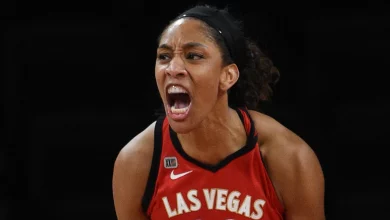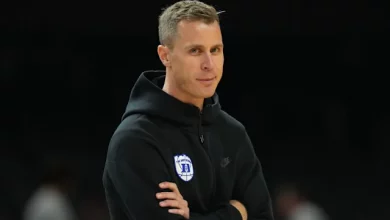The Edmonton Oilers should worry about finalizing Connor McDavid’s contract extension, as postponing talks may threaten team stability and hinder their chances of keeping their top superstar.

In the realm of professional hockey, few players command the attention, respect, and influence that Connor McDavid does. As the captain of the Edmonton Oilers and widely regarded as one of the most talented and impactful players in the NHL, McDavid’s presence on the ice is transformative for his team. Given his exceptional skill set, leadership qualities, and importance to the franchise, the Oilers’ management faces a critical challenge: securing a contract extension that ensures McDavid remains in Edmonton for the foreseeable future.
This analysis explores why the Oilers should be deeply concerned about delaying or neglecting the process of finalizing McDavid’s extension. The discussion will cover multiple facets — from the strategic importance of stability and player loyalty to the potential risks of deferred negotiations, economic considerations, and the broader implications for the franchise’s future.
1. Connor McDavid: The Franchise Cornerstone
Connor McDavid’s impact on the Edmonton Oilers cannot be overstated. Drafted first overall in 2015, McDavid quickly established himself as a generational talent, earning multiple Hart Trophies as the NHL’s most valuable player. His speed, hockey IQ, scoring ability, and playmaking skills elevate the entire team’s performance.
Beyond his on-ice prowess, McDavid embodies leadership and professionalism, serving as a model for young players and a rallying point for fans. His jersey sales, media presence, and sponsorships contribute significantly to the franchise’s brand value. McDavid’s marketability extends beyond Edmonton, making him a global hockey icon.
Given these factors, it is clear that McDavid is more than just a star; he is the franchise’s linchpin. Losing him or facing uncertainty about his future could have repercussions that ripple throughout the organization.
2. The Risks of Delayed Negotiations
a. Player Uncertainty and Motivation
Prolonged negotiations or delays in contract talks can create uncertainty for McDavid. Players in such situations may feel undervalued or unappreciated, which can impact their motivation and performance. While McDavid has consistently demonstrated professionalism, ongoing negotiations can strain the player-team relationship, especially if negotiations drag on or become contentious.
b. Competitive Disadvantage
Other teams often monitor contract negotiations closely. If McDavid perceives that the Oilers are not making a concerted effort to retain him, he might become receptive to offers from other franchises. This could lead to a loss of leverage for the Oilers, potentially resulting in a situation similar to what has been seen in the NHL with star players requesting trades or testing free agency.
c. Economic and Salary Cap Implications
The timing of a contract extension affects the team’s salary cap management. Signing McDavid early can lock in a cap-friendly deal, especially if negotiations happen before his market value skyrockets or before the cap increases significantly. Delaying could lead to higher salary demands, which may strain the team’s salary cap and limit flexibility for other roster moves.
d. Franchise Stability and Fan Engagement
Fans invest emotional and financial support into their teams. The uncertainty surrounding McDavid’s future can dampen enthusiasm and ticket sales. Conversely, a clear commitment through an extension reassures fans, boosts morale, and enhances the franchise’s stability.
3. The Potential Consequences of Not Securing McDavid’s Extension Promptly
a. Risk of Losing the Player
While McDavid has publicly expressed his desire to stay in Edmonton, contract negotiations are complex and multifaceted. If the Oilers wait too long, they risk losing leverage or, worse, McDavid’s willingness to entertain offers elsewhere. This could culminate in a trade or a situation where McDavid leaves as a free agent, which would be a significant setback for the franchise.
b. Impact on Team Competitiveness
A star player’s commitment influences the team’s ability to attract and retain other high-caliber players. If McDavid’s future remains uncertain, other players might hesitate to sign or renew contracts with the Oilers, fearing instability. This could hamper the team’s competitiveness for years to come.
c. Franchise Reputation and Negotiation Power
The way the Oilers handle McDavid’s extension can influence their reputation in the league. A proactive, respectful approach can bolster their standing as a franchise that values its stars, while protracted or contentious negotiations might damage their reputation, making future negotiations with other players more difficult.
4. Strategic Considerations for the Oilers
a. Timing the Extension
Negotiating a contract extension before McDavid’s current deal expires is crucial. Doing so provides the team with leverage and ensures continuity. Waiting until the last moment could lead to rushed negotiations or increased demands from the player’s camp.
b. Balancing Cap Space and Competitive Goals
The Oilers must consider their salary cap situation. A long-term, lucrative deal for McDavid must be balanced against the team’s roster needs and cap constraints. Planning well in advance allows for strategic roster building.
c. Building a Winning Culture
Securing McDavid’s extension early signals a commitment to building a winning culture around him. It can also facilitate negotiations with other key players, knowing that the franchise has a clear vision and stability.
5. The Broader Context: NHL Trends and Player Power
In recent years, the NHL has seen a shift toward player empowerment, with stars demanding more control over their contracts and destinations. Superstars like McDavid are increasingly capable of shaping their careers through negotiations, trades, or free agency.
The Oilers’ willingness or reluctance to negotiate in a timely fashion will influence their reputation and their ability to attract top talent. It also sets a precedent for how they treat their most valuable assets.
Why the Oilers Must Act Now
Given Connor McDavid’s unparalleled value to the franchise, the Edmonton Oilers should prioritize securing his contract extension proactively. Delaying negotiations can lead to several detrimental outcomes: player dissatisfaction, loss of leverage, increased financial demands, and potential destabilization of the team’s core.
By acting decisively, the Oilers can demonstrate their commitment to building a competitive and stable team around McDavid. This move will reassure fans, motivate the roster, and position the franchise favorably for future success.
In today’s NHL landscape, where player movement and contract negotiations are more dynamic than ever, the Oilers cannot afford to stall. The longer they delay, the higher the risk of losing their franchise player or undermining their team’s ambitions.
In conclusion, the Edmonton Oilers’ concerns about Connor McDavid’s extension are justified and pressing. Their strategic approach to this critical negotiation will shape the franchise’s future and determine whether they can maintain their status as a competitive powerhouse in the NHL.









